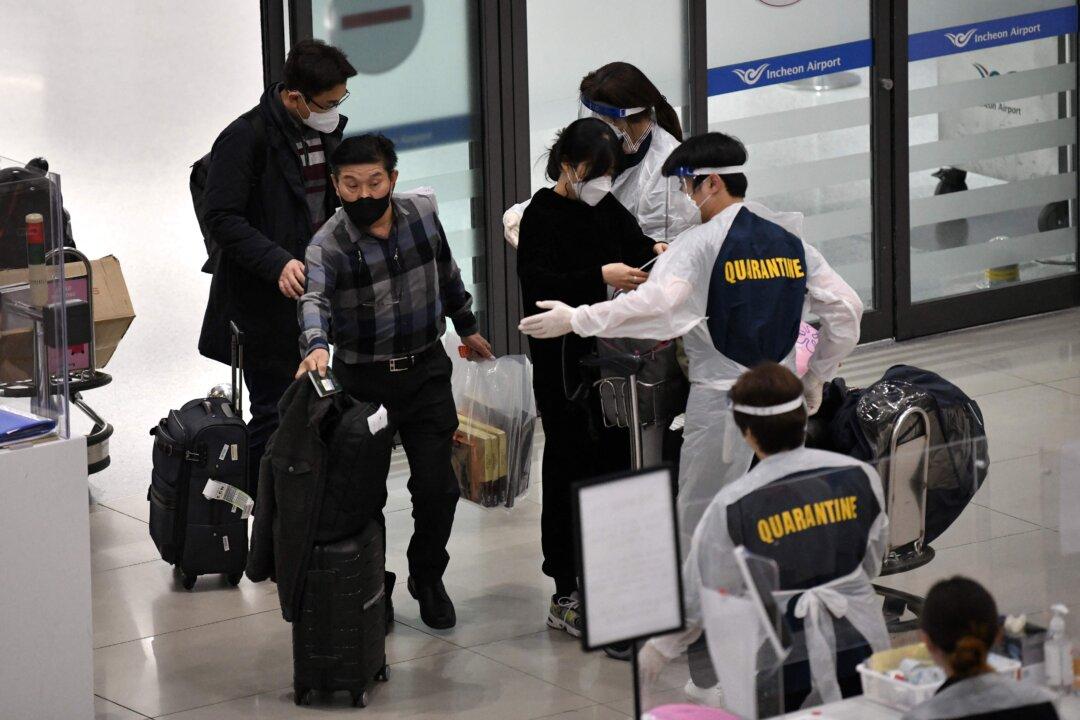Seoul police announced they captured a 41-year-old Chinese man who had tested COVID-19 positive when he arrived at Incheon Airport from China, and subsequently ran away from the quarantine hotel he was taken to.
Hotel camera footage shows him running from the quarantine hotel in Yeongjong-do, Incheon, at around 10:04 p.m. on Jan. 3, shortly after he and other travelers who tested positive had been taken to the facility by bus.




